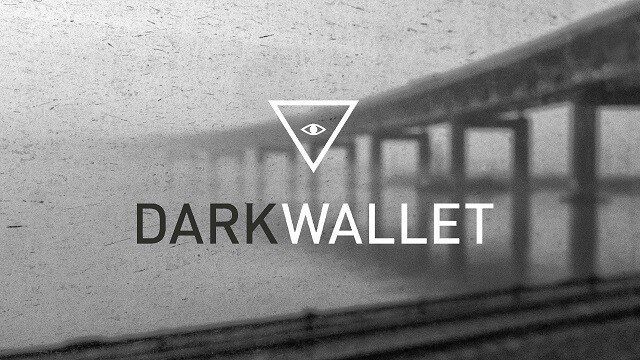The New York Department of Financial Services has released its list of proposed regulations for businesses that revolve around Bitcoin and other digital currencies. The rules specify what steps potential firms must take before they start dealing with cryptocurrencies — referred to in the document as “virtual currencies” — within the state of New York.
In order to comply with the regulations in New York, businesses must follow all the rules within 45 days or risk criminal prosecution. Once the so-called BitLicense has been applied for and approved by Superintendent Ben Lawsky and his department, the prospective Bitcoin business will have the freedom to operate in the state of New York.
Every Activity is a Business Activity
But the phrase “Bitcoin business” hardly describes the broad swath of individuals, groups and organizations that are engaged in “virtual currency business activity” according to the definitions set forth in the BitLicense proposal. Unsurprisingly, that definition includes exchanges where Bitcoin, Litecoin, dollars and euros can be traded amongst each other.
Rather absurdly, the definition could also be construed to include Bitcoin miners. Indeed, the rules state that anyone “controlling, administering, or issuing a virtual currency” is engaged in a virtual currency business activity and therefore subject to regulation in New York. Bitcoin mining on the blockchain could arguably be construed as administering and issuing the currency, especially in a proof-of-work scheme that relies on block rewards as incentive.

Do miners in New York now have to apply for a BitLicense if they want to operate with a clear conscience in the eyes of the law? What about wallet developers who create useful tools for storing Bitcoin? And the hundreds of various cryptocurrencies that now exist online and could potentially be purchased by a New York resident — do those altcoin developers also have to apply for a BitLicense?
The regulations as they stand now are simply too broad in their scope. Wired reports that Patrick Murck, general counsel for the Bitcoin Foundation, thinks the broad definitions are “ridiculous” in their extent:
Really the scope of this thing ropes in the whole industry. This proposal would set New York up as a quasi-federal regulator for the entire bitcoin industry.
When new regulations are suddenly a concern for the top lawyer at the organization that advocates the most for regulations, perhaps the rest of the community should be concerned as well.
Extensive Record Keeping of Bitcoin Transactions
The regulations would require digital currency businesses to maintain comprehensive records of all customers and their various transactions. In addition to the typical anti-money laundering and know-your-customer rules that several U.S. exchanges already comply with, the new regulations will implement even more record-keeping requirements.
All transaction logs must be kept for a minimum of 10 years, including the real names and physical addresses of all participants in each transaction. With such an implementation, Bitcoin businesses in New York would be tracking all financial actions — no matter how small — of their customers. This is not a concerning function in and of itself, as transaction logs are commonplace on Bitcoin exchanges, but it becomes a concern when the government wants these logs for its own prying eyes.
In addition, anonymizing applications of blockchain technology such as Dark Wallet and Darkcoin would be outright banned. If New York were to truly implement these rules, privacy would be completely out the window for anyone hoping to lawfully deal in Bitcoin or other cryptocurrencies.

Serial Bitcoin advocate and entrepreneur Erik Voorhees wrote a comprehensive and scathing critique of the privacy implications, arguing that requiring the individual to expose such sensitive personal information is actually the antithesis of consumer protection:
How can it be in the interest of a consumer to force them to reveal their identity, submitting personally identifying documents directly to private companies, and then indirectly to various government agencies, and then periodically to hackers and 3rd parties who otherwise inevitably obtain it? How does that protect the consumer?
In Voorhees’ mind, one of the prime innovations of Bitcoin is its ability to facilitate anonymous transactions across the Internet without being tied to any particular identity — essentially the cash of the Internet. But the New York regulations threaten to ruin that innovation, forcing the ecosystem to keep extensive records of people’s real-world identities.
Leaders of the Bitcoin Industry
Voorhees goes on to chide various industry leaders who have praised New York’s proposed regulations. The Winklevoss twins, who are in the process of creating a regulatory compliant Bitcoin trust for wealthy investors, have expressed pleasure that Superintendent Lawsky and the NYDFS have “embraced” Bitcoin with the rules. But Voorhees has a different take:
This is not an embrace, it is the chaining of a generation’s most important invention to the failed financial infrastructure for which Bitcoin was an explicit refutation.
For examples of failures in current infrastructure, Voorhees cites the Target hacking scandal in which many thousands of customers had their credit card information stolen — despite comprehensive regulations designed to prevent that scenario. And then of course, there are multitudes of identity thefts every year because people are required to give up personal information for many online services.

Voorhees then expands his critique to an even greater number of industry leaders, all of whom have expressed some form of support for New York’s BitLicense regulations:
Are you listening Jeremy Allaire? Are you listening Armstrong and Ersham? Are you listening Winklevii and Andreessen? You are leaders of the industry – well, where are you leading it?
His critique of the regulations are eloquently stated and certainly deserve a full read. Hopefully it will inspire other industry leaders to speak out against the absurd regulations being proposed by Ben Lawsky and his department.

 No Comments
No Comments
